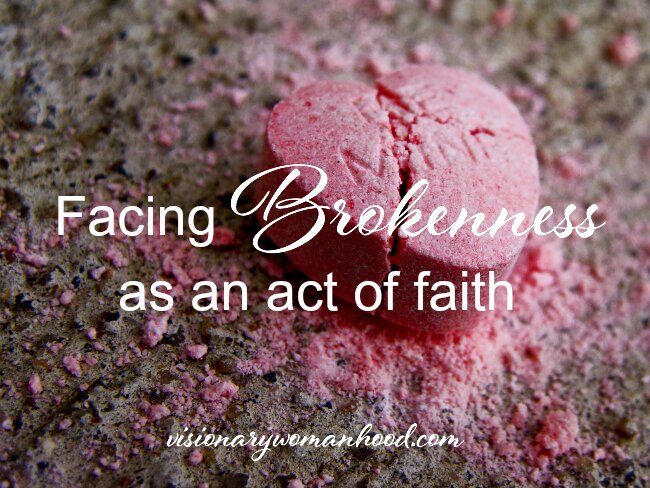
Photo Credit: bored-now via Compfight cc
Facing our brokenness is a breathtaking act of faith in the living God; refusal to face our brokenness is a tragic denial of his existence, power, and goodness. Because the denial of painful reality comes so naturally, it is rarely labeled as sinful. Nor do we recognize how much it dishonors the God who loves us. The Bible says that God is a God of truth (John 14:6). God is the Lord of history, who will ultimately triumph over all human evil (1 Corinthians 15:25–26; Revelation 20:7–15).
Scripture declares that nothing, not natural disaster, abuse, or demonic powers, can separate us from the love of God (Romans 8:38–39). Thus, refusal to face the truth about our brokenness is no trivial matter. Dan Allender puts it succinctly: “Denial is an affront to God. It assumes that a false reality is better than the truth. It assumes that God is neither good nor strong enough to help during the recall process.
Ultimately, the choice to face past [abuse] memories is the choice not to live a lie.”4 Stated positively, as we refuse to deaden ourselves to the truth and to the pain of our past abuse, we throw ourselves into the arms of the only one who can heal us. This is why Jesus pronounces a blessing on those who are willing to mourn (and to keep on mourning);5they are the ones who will experience divine comfort (Matthew 5:4).
As long as we minimize the ugliness of our lives, we short-circuit the divinely ordained means of grace. We also short-circuit the experience of God’s power and sufficiency. It is only when we stand naked and broken before him, refusing to ease our pain by lying to ourselves, that we fully taste his sweetness.
Over and over again the psalmist admonishes us to cry out to the Lord in our brokenness so that we can taste God’s power and beauty: “The LORD is near to the brokenhearted and saves those who are crushed in spirit” (Psalm 34:18). “This poor man cried, and the LORD heard him and saved him out of all his troubles” (34:6). “Turn to me and be gracious to me, for I am lonely and afflicted. The troubles of my heart are enlarged” (25:16–17). “How long shall I take counsel in my soul, having sorrow in my heart all the day? . . . But I have trusted in Your lovingkindness. . . . I will sing to the LORD, because He has dealt bountifully with me” (13:2, 5, 6). “God is my helper; the Lord is the sustainer of my soul. He will recompense the evil to my foes” (54:4–5).
As we are willing to face and taste our brokenness we will be able to taste God’s sustaining power.
Tracy, Steven R. (2009-05-26). Mending the Soul: Understanding and Healing Abuse (Kindle Locations 2537-2545). Zondervan. Kindle Edition.









